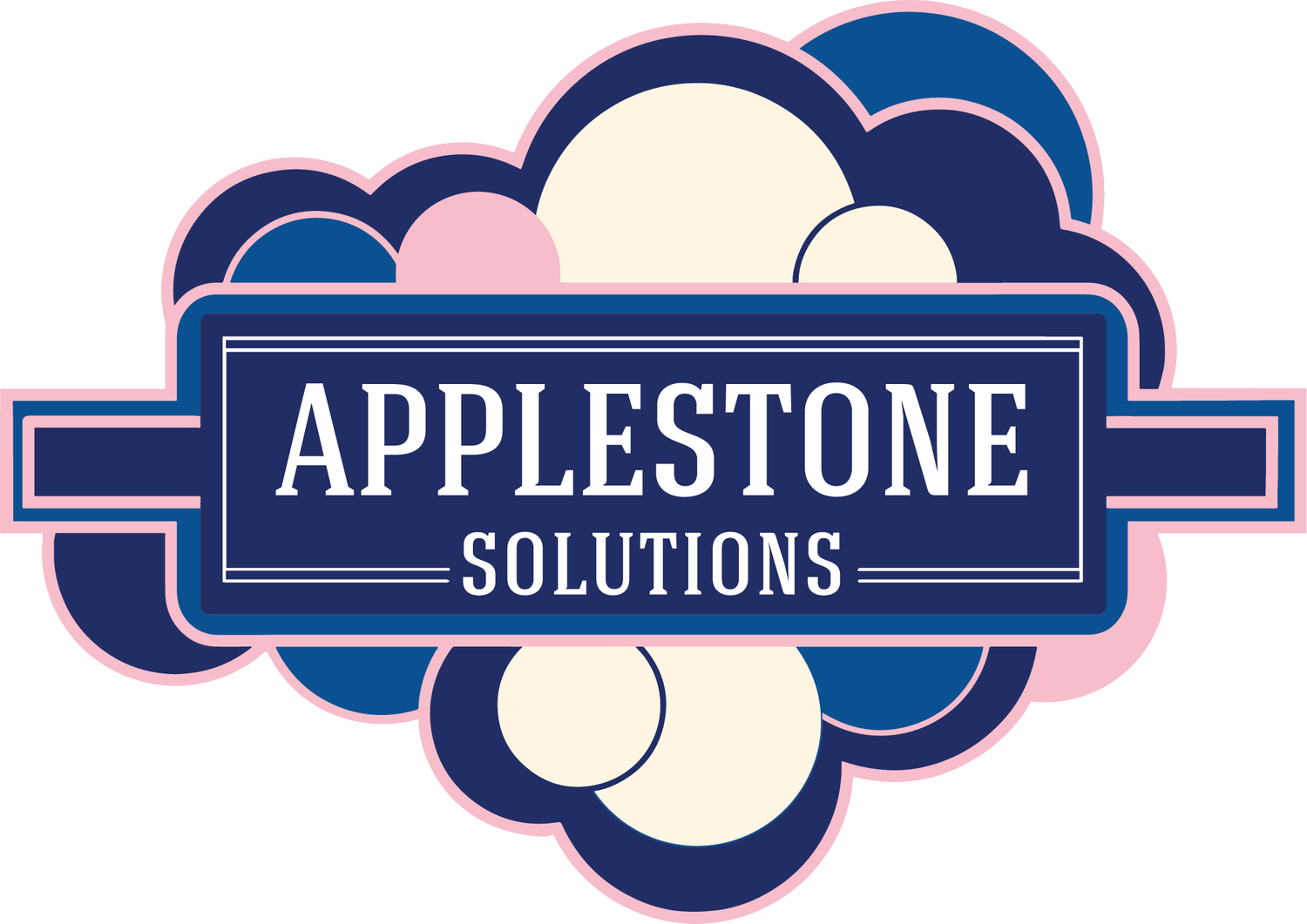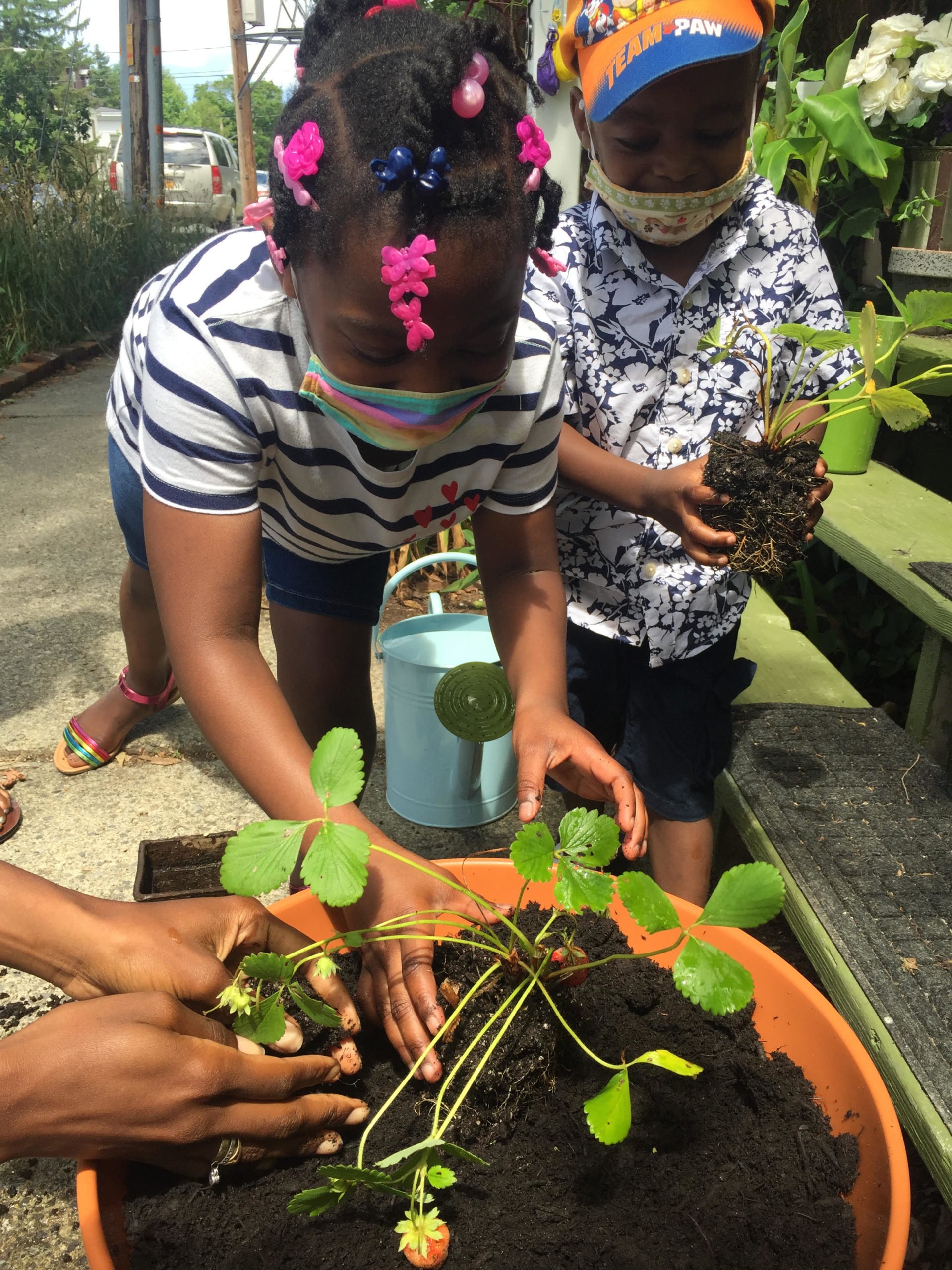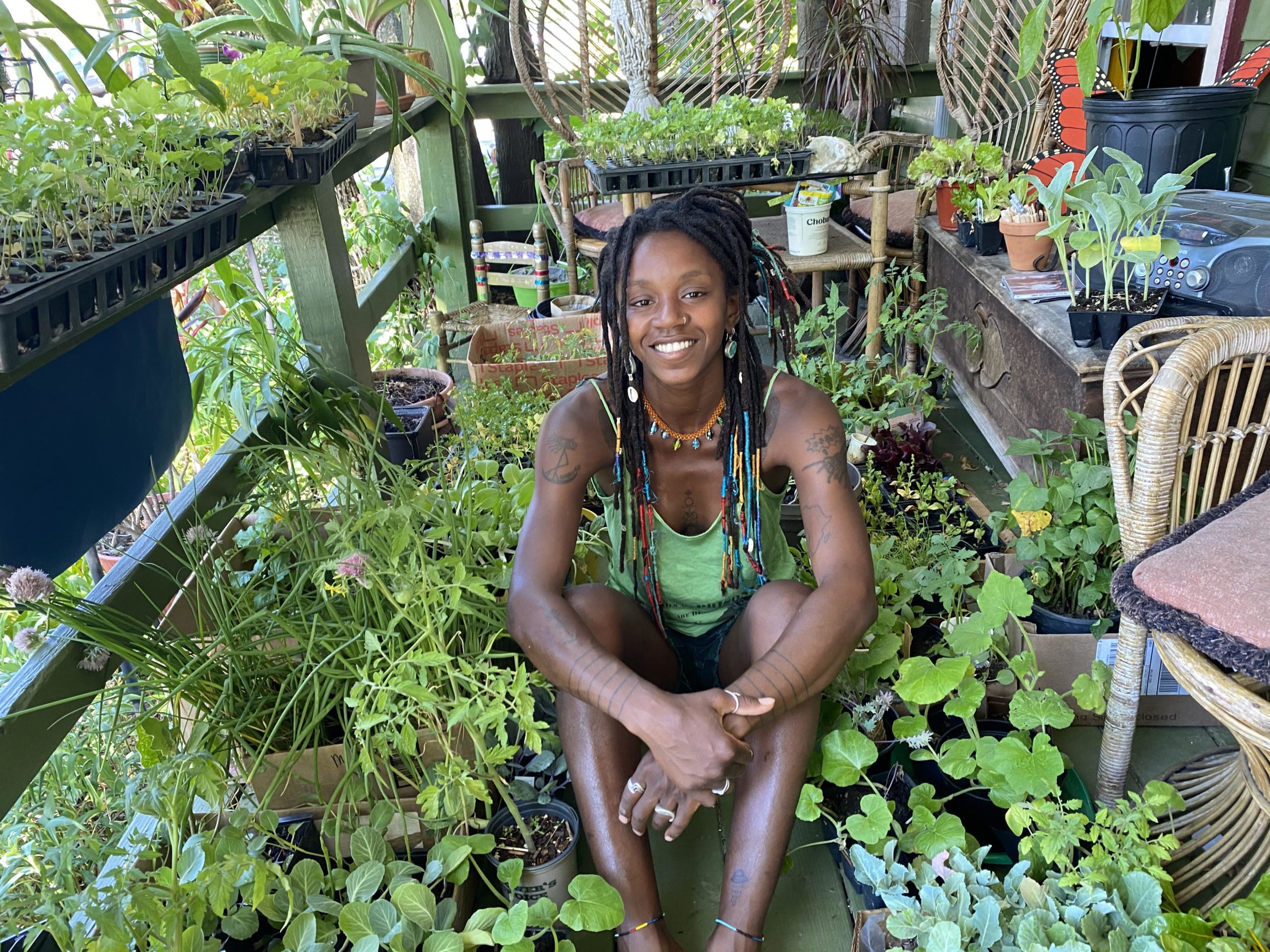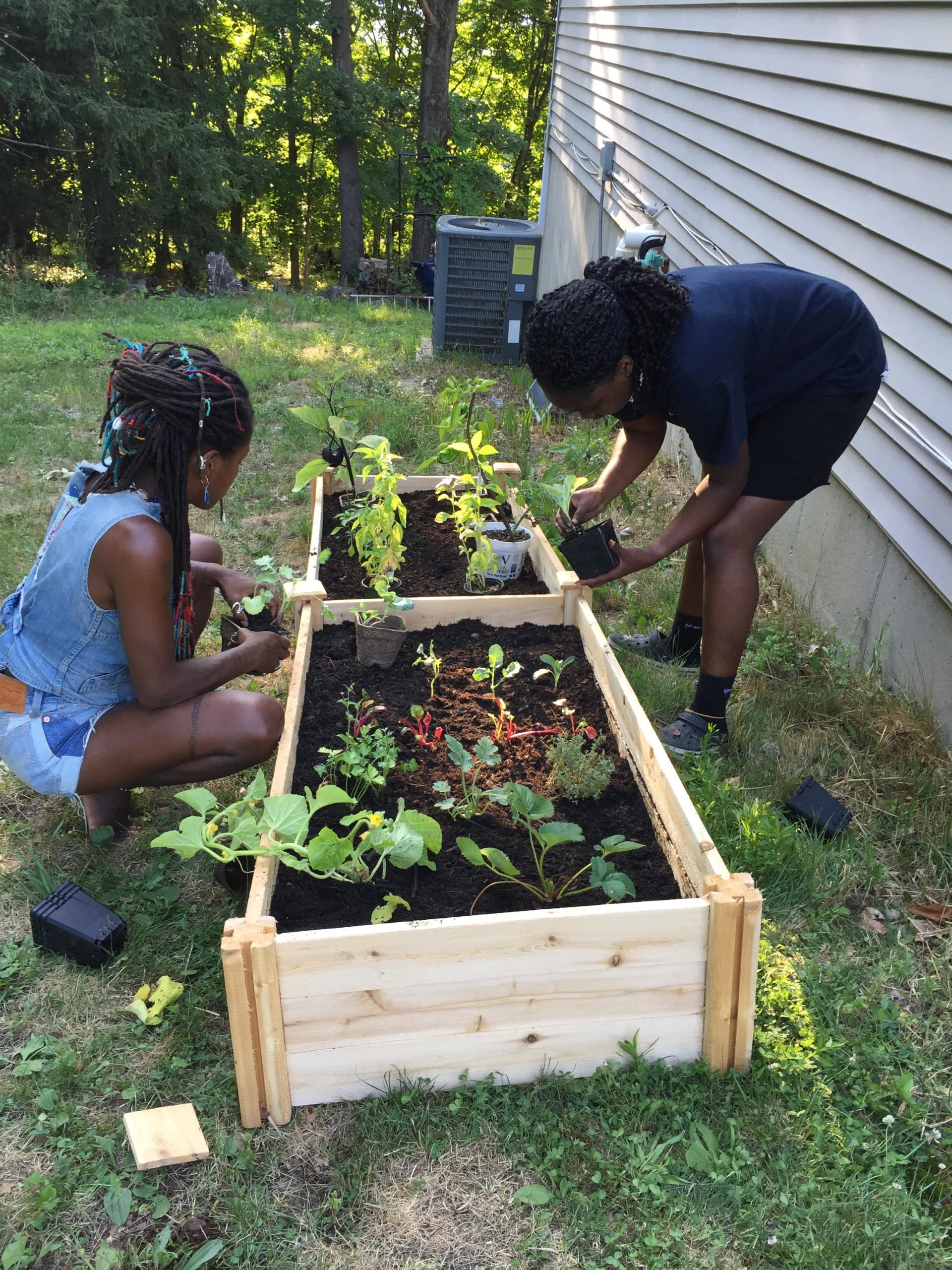Community: Grow Black Hudson
It took only six days for Grow Black Hudson, a new project to educate Black and Brown Hudson community members about the importance of growing food, to meet its $10,000 GoFundMe goal. “We all know food is a weapon and we’ve grown in a system where processed food is fed into the Black communities leading to a long line of health issues in the future,” founder Nkoula Badila wrote on Instagram when she publicly launched the project on Juneteenth. Badila has been amazed at how the community has come together and shared ever since. “People came by with soil and tools and raised bed kits and plants,” she said. “This is what can happen when you put the energy out when you can be here to receive.”
LEARNING TO FARM
Badila, who has lived in Hudson since she was four, comes from a traditional Congolese family with ten kids. Growing food has always been part of her life. “We are really connected to nature and the spirituality,” she said. Mainly educated at public schools, Badila spent a few years at Hawthorne Valley School in Ghent, which is connected to a working biodynamic farm. Farming lessons are woven into the school curriculum and made a real impact on Badila: “We learned a wider range of what it means to be a farmer, to know the food, the animals, and the elements.” In 10th grade, Badila interned at a farm in Germantown, staying in a “shack cabin” for a week. “We were planting all different things, learning about bees. It was so beautiful. Everything about it felt so healing and medicinal to me,” she said, recalling the fresh air and swimming. She was keenly aware she was the only Black person there, enjoying this transformative experience. She was inspired to share farming with her Hudson community. But first, after graduating high school, she went WWofing—this stands for worldwide opportunities on organic farms—to learn even more. She farmed in Mexico, Belize, Haiti, and California. “I experienced different climates, languages, cultures, and ceremonies with the land—what people grow and the meaning of what they grow,” she said.
LAUNCHING GROW BLACK HUDSON
Back home in the Hudson Valley, Badila did some gardening work and landscaping. She hadn’t given up on the idea of beginning a project like Grow Black Hudson. It felt especially critical for her, given the gentrification and segregation in Hudson, that it be run by Black people for the Black community. But the right moment to launch wasn’t apparent until Covid-19 and the Black Lives Matter revolution. “A lot of what has come up now with systemic racism—all of these systems have been here a long time. We as Black people have experienced this. With the more recent energy of things—Covid allowed more time for reflection—we see a little deeper what’s going on. This revolution came up so strong after George Floyd. People have to face it in a true way,” she said. Badila began to connect with local families to offer to help them build gardens and plant food. Many are people she knew from childhood, and who have been pushed out of low-income housing due to gentrification. “When we were younger, my mom would do plays, hair braiding, and African dancing. There was more of a community connection to our roots,” Badila recalled. These programs from her childhood that were run by Black people were taken over by others who had funds or sizzled out. Badila hopes to Grow Black Hudson will help reconnect neighbors. “We are bringing the voices in our community to see what we really need for ourselves, for our healing—an inclusion and a balance. The whole idea is for it to feel like family like we are really taking care of each other.”
THE FIRST GARDEN
In the first two weeks of Grow Black Hudson’s existence, Badila built seven raised beds and shared plants with 16 total families. The first garden felt “amazing.” It was with a large family with people of all ages—younger, older, teenagers. “We were literally experiencing man, woman, child all there together, everyone learning. The families are so amazed by little sprouts and flowers,” she said. Being there, watching their reactions was exactly the inclusive healing she envisioned.
GET INVOLVED
Donate Funds
This will help Grow Black Hudson purchase materials and even a car to make deliveries of soil, raised beds, plants, and seeds. As they get more resources, Badila hopes to be able to offer gardens beyond Hudson. https://www.gofundme.com/f/grow-black-hudson
Spread the Word
Follow Grow Black Hudson on Instagram to help them share information about the project. This is where they will post future needs.
Send Good Energy
Grow Black Hudson is rooted in energy. There’s no such thing as too much good energy. And don’t forget to check out Nkoula Badila’s music, too. https://www.instagram.com/_nkodia_/



